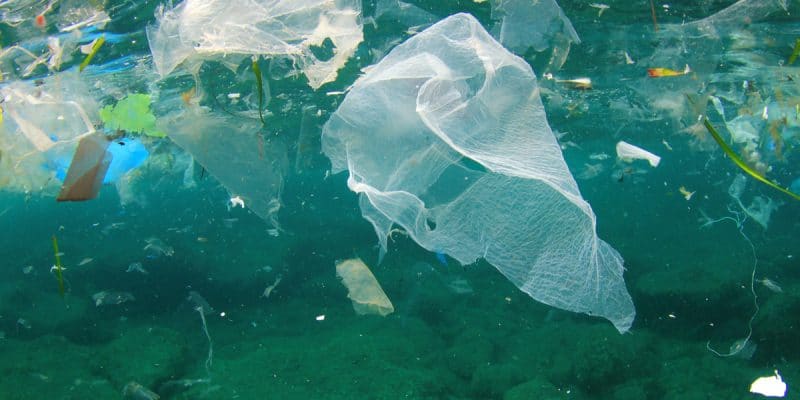The funds of the Clean Oceans initiative, which finances projects aiming at reducing plastic waste in waterways, have been multiplied by two. They go from 2 to 4 billion euros by 2025. This was decided by the members of this initiative, who met at the "One Ocean Summit" from 8 to 11 February 2022 in Brest in northern France.
France, Germany, Italy, Spain and the European Investment Bank (EIB) decided on February 11, 2022, to increase to 4 billion euros by 2025 the amount of funding provided under the European initiative Clean Ocean. This was at the end of the “One Ocean Summit”, a summit held in Brest in northern France, as part of the French Presidency of the Council of the European Union (EU), to try to save the oceans from plastic pollution.
“This commitment, announced at the One Ocean Summit in Brest, shows that public development banks are working closely with coastal and river authorities to reduce plastic pollution in the oceans resulting largely from land-based activities,” says Rémy Rioux, chief executive officer of the French Development Agency (AFD). Launched in 2018 by the EIB, in collaboration with AFD and the German development bank, Kreditanstalt für Wiederaufbau (KfW), the Clean Oceans initiative finances projects to reduce plastic waste in rivers and seas or inland. So far, the initiative has only been funded with 2 billion euros by 2023.
Already 7 projects funded in Africa
In its three years of existence, Clean Oceans has reached 80% of its target by providing long-term funding worth €1.6 billion to support public and private sector projects that reduce the release of plastics, microplastics and other waste into the oceans through better management of solid waste, wastewater and stormwater.
The projects signed so far will benefit more than 20 million people in Africa, Asia, Latin America and Europe. The initiative has improved wastewater treatment in Sri Lanka, China, Egypt and South Africa, solid waste management in Togo and Senegal, and stormwater management and flood protection in Benin, Morocco and Ecuador.
Nearly 10 million tons of plastic waste end up in the oceans each year
The doubling of the Clean Oceans Initiative’s commitment is motivated by the threats to the oceans and the pressing need to protect its natural resources. The latest estimates indicate that 10 million tons of plastic waste end up in the oceans every year. The billions of masks and gloves used during the Covid-19 pandemic further compound the problem. This pollution threatens estuaries, coral reefs, fish and the millions of families that depend on the oceans.
Lire aussi-AFRICA: AFD and FFEM finance the fight against plastic pollution in the oceans
Yet the seas provide countless benefits to the planet and its people in the form of food, medicine, renewable energy and natural resources. AFD estimates the value of services and goods produced by marine and coastal resources at 2.5 trillion euros per year.
Boris Ngounou







